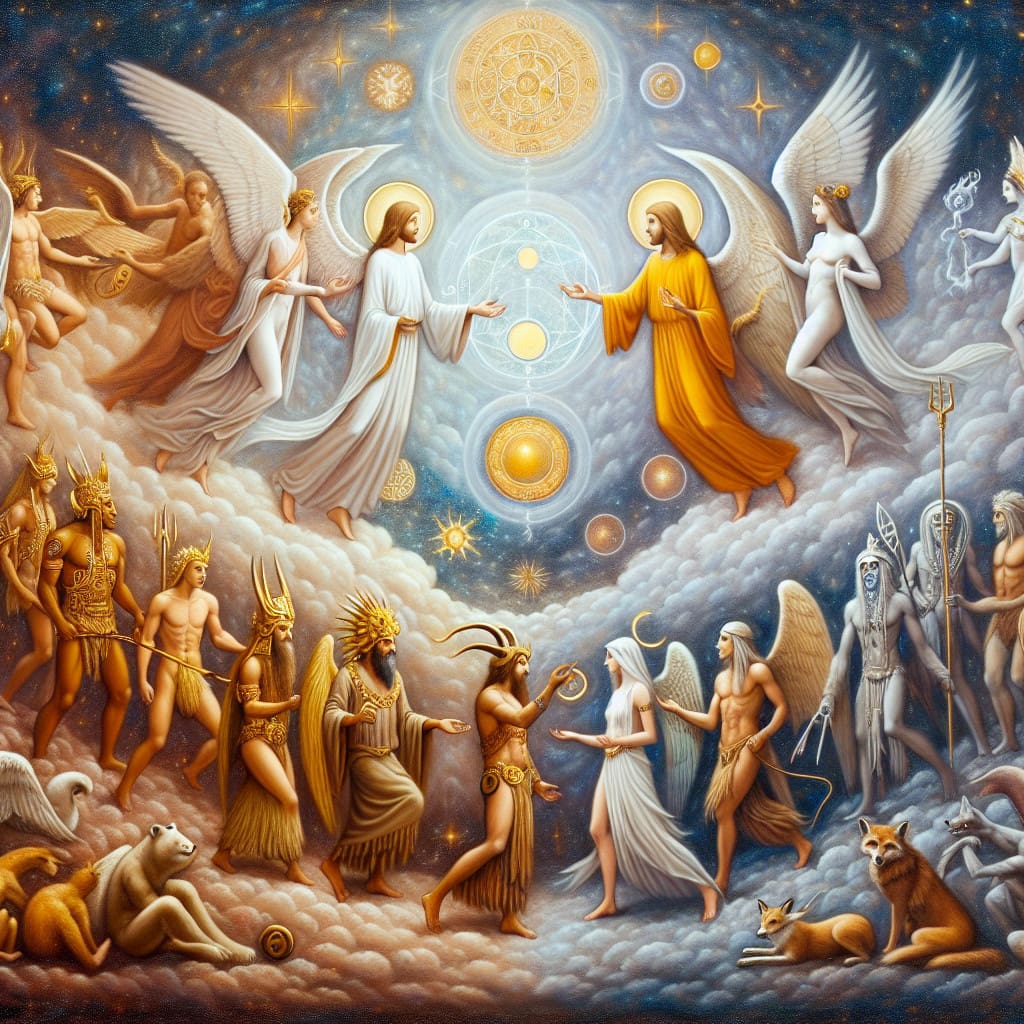The history of religion and belief has a long and complicated history, and the topic of angels and pagan gods is no exception. For centuries, different cultures and beliefs throughout the world have given rise to different interpretations of gods and the spiritual realm. In this article, we’ll explore the similarities and differences between angels and pagan gods, including their roles in society, their mythology, and their impact on belief systems. We’ll also examine how these two entities have interacted throughout history and the implications of their interactions in the present day.
The debate over the differences between angels and pagan gods has raged for centuries. While there is no one definitive answer, there are many distinct characteristics that differentiate the two entities. In this article, we will explore the differences between angels and pagan gods, with a focus on their powers and abilities.
Angelic Powers and Abilities
Angels are spiritual beings sent by God to do His will. They possess a variety of powers and abilities that are greater than those of humans. Angels are immortal, have superhuman strength, can fly, and can appear and disappear at will. They can also pass through walls, travel through time and space, and understand all languages. Angels also have the power to heal, guide, and protect humans.
Pagan Gods Powers and Abilities
Pagan gods, unlike angels, are not necessarily immortal. They are usually associated with certain physical features or attributes, such as the sun, the moon, or a natural element. They are often associated with certain powers, such as the ability to control the weather or to bring fertility to a region. In addition, pagan gods are often associated with certain emotions or feelings, such as love, anger, or fear.
Differences in Beliefs and Symbolism
The beliefs and symbolism associated with angels and pagan gods are quite different. Angels are often seen as messengers of God and symbols of purity and goodness. They are often depicted as having wings and wearing white robes. Pagan gods, on the other hand, are often seen as symbols of nature and the cycles of life and death. They are often depicted as having animal features, such as horns or claws, and are associated with darker colors, such as black or red.
Differences in Nature
The natures of angels and pagan gods are also distinct. Angels are said to be good, benevolent beings who serve God and obey His commands. They are often seen as messengers of justice and protectors of the innocent. Pagan gods, on the other hand, are often seen as unpredictable and capricious beings who are more interested in looking out for their own interests than in serving humans.
Conclusion
The differences between angels and pagan gods are vast and varied. Angels are spiritual beings sent by God to do His will, while pagan gods are often associated with certain physical features or attributes. Angels are often seen as symbols of purity and goodness, while pagan gods are often seen as symbols of nature and the cycles of life and death. Angels are said to be good, benevolent beings who serve God, while pagan gods are often seen as unpredictable and capricious beings who are more interested in looking out for their own interests than in serving humans. Ultimately, the debate over the differences between angels and pagan gods will continue to rage for centuries, as both entities have their own unique characteristics and powers.
In conclusion, the comparison between angels and pagan gods is complex and varied. Both have been around since ancient times and have been the subject of much myth and lore. Despite their differences, both have been seen as powerful forces in the spiritual realm and have been used to represent different aspects of life. Ultimately, it is up to each individual to decide which force they choose to believe in and how they want to incorporate it into their lives. No matter what, it is important to remember that both angels and pagan gods are powerful forces in the spiritual realm that can be used to bring comfort, guidance, and protection.






